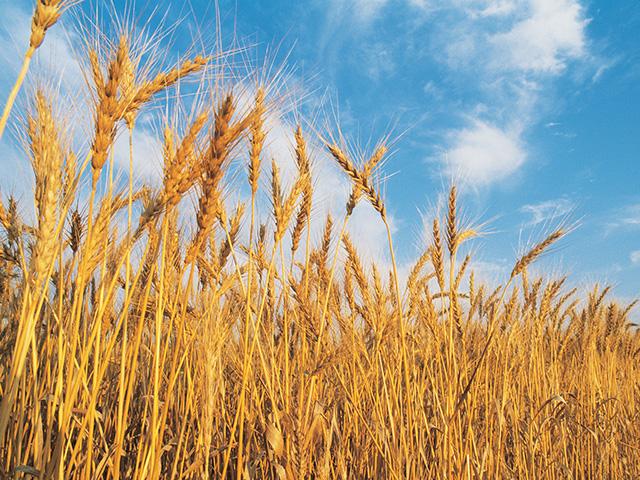Brazil Gives GM Wheat the Green Light
Drought-Tolerant Biotech Wheat Approved for Cultivation in Brazil
JEFFERSON CITY, Mo. (DTN) -- HB4 wheat, a drought-tolerant transgenic wheat, received approval for commercialization and cultivation from Brazil on Friday, March 3, making it the second nation to give its regulatory blessing to the grain.
Brazil had previously approved flour made from HB4 wheat, developed by Bioceres Crop Solutions Corp., for food and feed use in November 2021. It joins Argentina, which granted commercialization approval to the genetically modified (GM) wheat last year. Brazil annually plants 4.9 million to 7.4 million acres of wheat. When combined with Argentinian plantings, the two countries account for 90% of South American wheat.
HB4 wheat is also approved for food and feed use in the United States, Colombia, New Zealand, Australia, South Africa and Nigeria, and for feed use in Indonesia.
In June 2022, the U.S. Food and Drug Administration announced that it found no safety issues with the HB4 wheat. At the time, Bioceres stated that the conclusion of the voluntary premarket review by the FDA "is a key step toward commercial enablement in the United States, which is awaiting approval from USDA."
P[L1] D[0x0] M[300x250] OOP[F] ADUNIT[] T[]
The transgenic wheat contains HaHB4, a transcription factor originally isolated from sunflowers that is involved in tolerance to environmental stress. It also contains a GM trait conferring tolerance to glufosinate herbicide.
According to Bioceres, HB4 wheat delivered more than 40% yield increases in environments under severe water stress, based on results from Argentina's recent drought-affected crop. The company previously stated that the trait increased yields by up to 20%.
DTN Lead Analyst Todd Hultman said that in the face of factors affecting global agricultural productivity, he sees a growing market for GM wheat in the years ahead.
"Argentina just produced its smallest wheat crop in seven years, damaged by a La Nina-influenced drought. The smaller crop also happened to come at a time when global concerns about food insecurity are running high," he said. "Decisions by Argentina and Brazil to allow new strains of wheat are practical solutions for the larger problems of a growing world population that just exceeded 8 billion in November."
While Hultman noted that Brazil's decision to approve HB4 wheat is another step in the growing acceptance of genetically modified crops for food and feed use, DTN Basis Analyst Mary Kennedy said that for now, growing GM wheat is not an option for U.S. farmers.
"The biggest buyers of U.S. wheat -- Japan, China, South Korea and the Philippines -- will not buy GMO wheat," she said.
When the FDA made its announcement last year, the National Association of Wheat Growers and U.S. Wheat Associates issued a joint statement noting that the "U.S. wheat industry recognizes the benefits and value that can be created through the prudent application of modern biotechnology."
Read more about the FDA decision on HB4 wheat here: https://www.dtnpf.com/….
Jason Jenkins can be reached at jason.jenkins@dtn.com
Follow him on Twitter @JasonJenkinsDTN
(c) Copyright 2023 DTN, LLC. All rights reserved.






